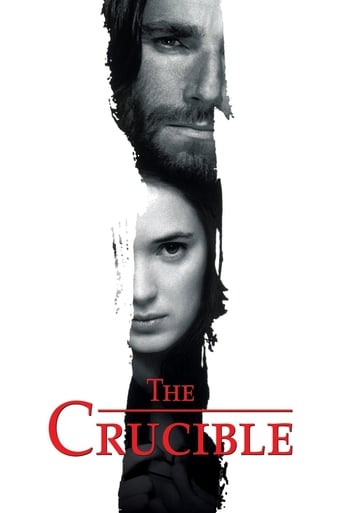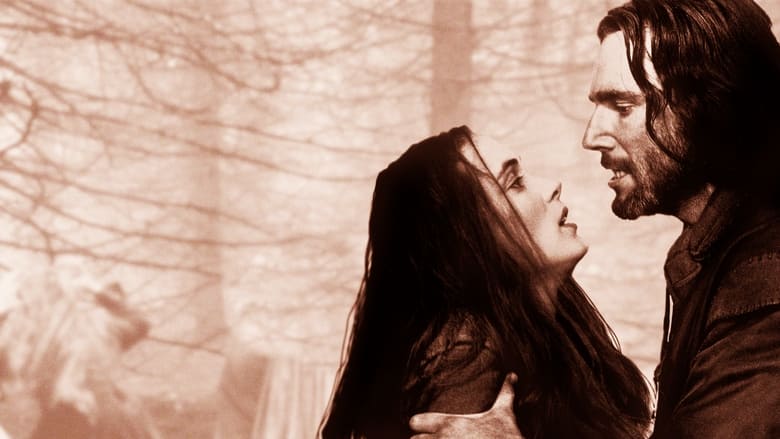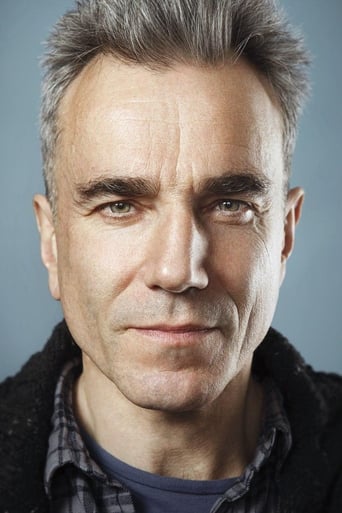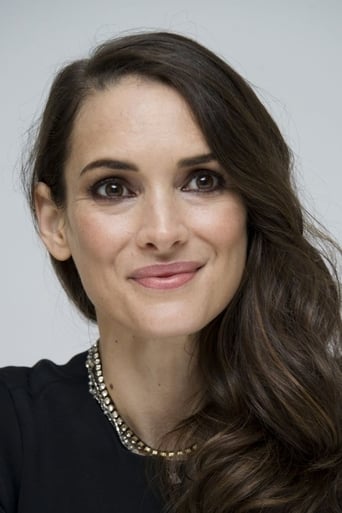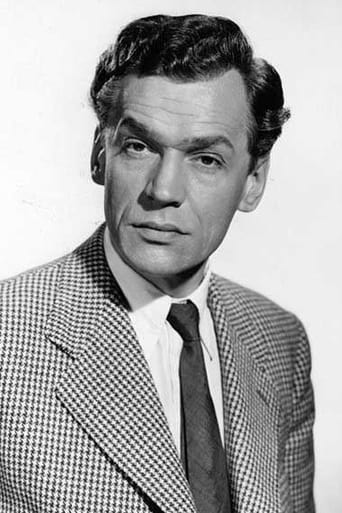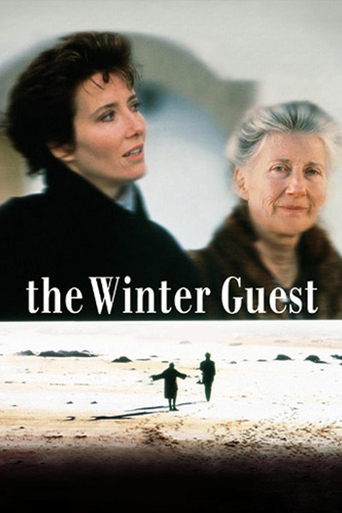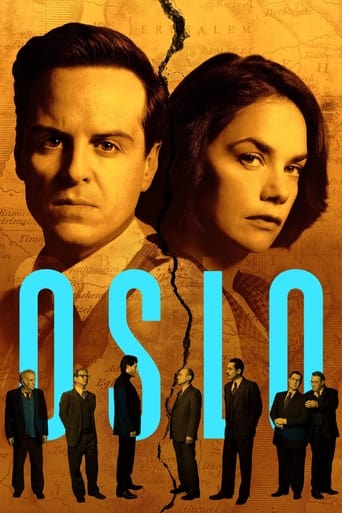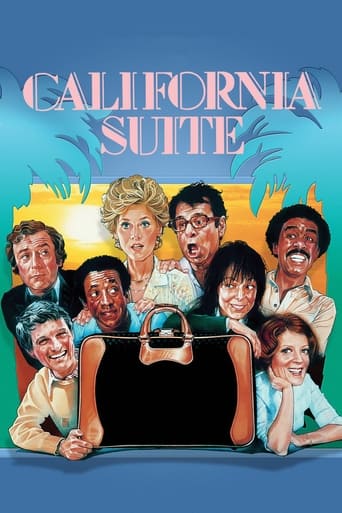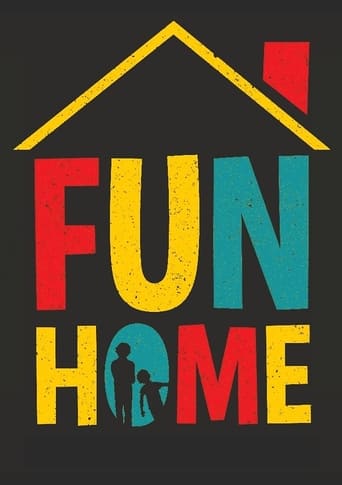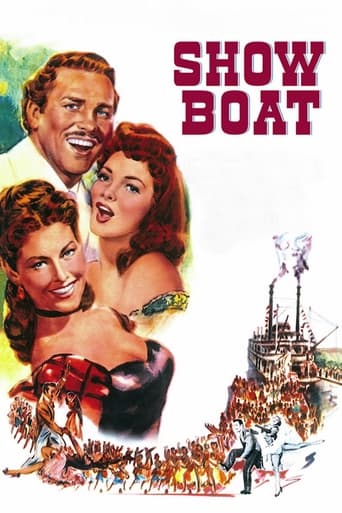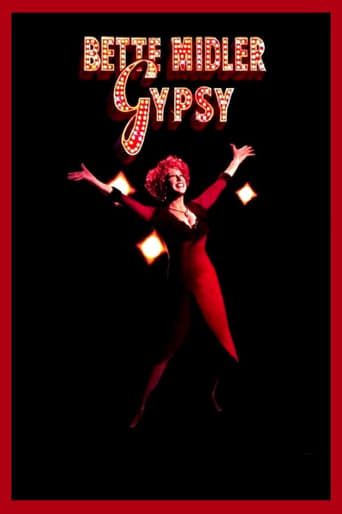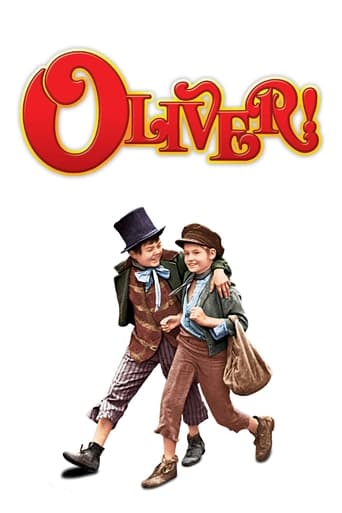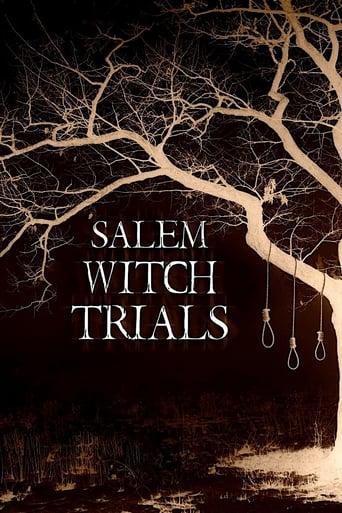The Crucible (1996)
A Salem resident attempts to frame her ex-lover's wife for being a witch in the middle of the 1692 witchcraft trials.
Watch Trailer
Cast


Similar titles
Reviews
Sometimes, movies that are designated as "classic" suffer from a strange sort of reverse- discrimination. That's probably the reason why it took me so long to actually see this version of "The Crucible", as I thought of it as "old" or "not exciting enough". What I quickly discovered, however, is that Arthur Miller's tale here is truly one for the ages. It's a shame I waited this long to see it!For a basic plot summary, "The Crucible" is a story set during the Salem Witch Trials of 1692. Abigail Williams (Winona Ryder) and a number of her teenaged female friends are screwing around in the woods one night (typical teenage rebellion kind of stuff) when they are discovered and charged as witches. What Abigail and the gang quickly discover is that in front of Judge Danforth (Paul Scofield), "acting the part" of witches gives them a great deal of attention and power. Things get ugly fast and pretty soon the entire community is in an uproar over who may or may not be a witch. Enter John Proctor (Daniel Day-Lewis) and wife Elizabeth (Joan Allen), a common sense-driven couple who seemingly have the best chance to put an end to this madness. Yet, with John having a shady history with Abigail, they all ended up sucked into the lies and deceit, forcing difficult choices to be made regarding character and honesty.Not being as much of a theater enthusiast as I am of film/TV, this was just the second Arthur Miller work that I had seen ("Death of a Salesman" with Dustin Hoffman being the first). That playwright has an incredibly keen sense of universal human themes and how to manipulate them to create high drama. Though "Crucible" is set hundreds of years ago, I can confidently say that it will endure (in some form or another) for hundreds of years more. The characters, emotions, and plots feel like they could happen today or tomorrow. This film touches on such common, deep-seated issues as:-The power of religion (both good and bad) -The effect of mass hysteria on an uneducated community -The propensity of one lie to be followed by more -The lengths humans will go (or the shortcuts we may take) to preserve our names and honor -The conflicting romantic notions of both teenagers and adultsSo, despite carrying a reputation that can get a little "weighty", "The Crucible" is really quite a simple film, concocting a plausible scenario and then letting human nature take its course. I recently saw the film "The Witch", a movie that shares much in theme with this earlier effort, and feel that the two measure up to each other quite well. If you enjoyed one, I think you will feel the same for the other.Overall, I was blown away by the simple, yet spectacular, quality of the writing and acting in "The Crucible". It will stimulate a lot of deep thought on the part of the viewer without getting overly complex or confusing. I think that there will be more Arthur Miller stories in my future!
It's a message movie and it resonates. Willful belief in absurdities plagues the town of Salem, Massachusetts, in 1693. A handful of young girls, caught dancing in the woods, begin to claim they were possessed by the devil and they make accusations of witchcraft. It leads to more than twenty hangings and other deaths by execution.When Arthur Miller wrote the play in the early 50s, it was his way of speaking out against the communist witch hunts of his time. And indeed the trajectories of the movements bear similarities. It starts with someone craving attention, first blaming someone who is not only harmless but marginalized -- insane people, the senile, the very poor. Then it leads to overreach. The dozen hysterical girls of Salem begin to claim that spirits of a higher caliber have haunted them at night -- the spirit of the preacher's wife, for instance, which goes a little too far.Historically, Senator Joseph McCarthy began with real spies and real suspects but his claims grew more and more outrageous until he inspired the John Birch Society to consider President Eisenhower nothing more than "a communist dupe." And then McCarthy accused the US Army and General George Marshall of harboring communists. It was all a bit much for the less than insane among our own citizenry.Now, of course, we can all cluck out tongues at such fantasies -- while presidential candidates now running would build an unscalable wall across the Mexican border and hunger for a wall across the Canadian border as well. The president is a gypsy changeling from Africa. Our strongest leaders turn into carnival barkers and we cheer them. That's not to mention worms in McDonalds' hamburgers. I guess -- I hope -- the less insane among us will reintroduce us to reality some day.In any case, that's the end of my spiel. I will now stand down from the speaker's platform if someone will give me a hand. Thank you, but you don't have to be so eager.The acting and the milieu are finely done. Winona Ryder does very well as the lustful young traitor and she handles the stylized speech all right. It's only when she's excited that a bit of Wynona, Ohio, peeps through Abigail Williams.In 1693, these were all Brits, not Americans. So Paul Scofield can enter the movie as a judge who wants to be fair but is himself possessed by his interpretation of the Bible and his loyalty to what he perceives God to be. Those baggy eyes and that pebbled chin are just villainous enough.Joan Allen as an innocent victim is a fine actress but she doesn't have much to do except look made of stone. Make up has turned her face sere and gray. Daniel Day-Lewis is one of the better actors of his generation but he's stuck in the part of the audience proxy -- the man of principle, guilty only of having boned Winona Ryder in the barn, who sees through the fraudulence of the accusations, the trial, and the ensuing executions. He sees the foolishness. We can see it too, even if we can't see our own.There's a much less lavishly budgeted story of the witch trials around too, "Three Sovereigns For Sister Sarah," I think. It's well worth catching.
The Crucible**** (out of 4)124 mins/ 12Cast: Daniel Day-Lewis, Winona Ryder, Joan Allen, Paul Scofield, Bruce Davison, Rob Campbell, Jeffrey Jones, Peter VaughanDirector: Nicholas HytnerPlot: Abigail Williams, a puritan teenager in the times of the Salem Witch-Trials, accuses her ex- lover's wife of compacting with the devil.JJ's Verdict: Based on a true story, The Crucible is a thrilling and emotional take on the Salem Witch-Hunt and the consequencing trials and hangings. Arthur Miller, adapting the story from his own play, received an Academy Award nomination. The film's hero is John Proctor, a sinful but respected farmer living in Salem, who comes into the story when his ex-lover accuses Proctor's wife of witchcraft. Of course, being set in the 17th century, the film gives a highly realistic look and view of the time. The American-British accents from the whole cast are fully complete as are their performances. Daniel Day-Lewis, who portrays Proctor, once again completely transforms into his character (no doubt he lived in the conditions of the times and wore the clothes for months to prepare for his role.) His character has a certain charm, reluctancy and silent, brooding confidence – and all these attributes are superbly picked up Day- Lewis. Winona Ryder, playing Abigail, is just incredible in a ruthless and superbly dramatic performance. Her character really only starts with all her accusing to get back at John, and Ryder plays the spitefulness of her character very well. Paul Scofield is also good as Thomas Danforth, a judge, and Joan Allen is suitably dramatic in an Oscar nominated role as Proctor's struggling wife. Although the entire feature is emotionally driven, one scene really sticks out in my mind when looking back on this very underrated classic. This scene in which all the town's girls start to name people they saw with the devil is very dramatic. Forced into 'admitting' by Bruce Davison's Reverend Parris, all of the actresses let themselves go and just let the lines flow through their mouths. Similar scenes like this occur throughout the film and it is times like these when 'The Crucible' moves more towards a black comedy. However, the last half an hour is anything but. Emotionally depressing, it helps give the film an epic status. The beautiful cinematography and a deep score from George Fenton help to make the final few moments a good time to get the box of tissues out.All in all, a brilliant cast (which also includes Peter Vaughn, Rob Campbell and Jeffrey Jones) gives 'The Crucible' a super lift from a good historical drama, to an emotion filled mini-epic.
The Salem witch trials that occurred from February 1692 to May 1693 resulted in 19 people hung, another slowly crushed to death and over 150 imprisoned. Historian George Lincoln Burr described it as a notorious case of mass hysteria and vivid cautionary tale about the dangers of isolationism, religious extremism, false accusations and lapses in due process.Since I love history and am a fan of Daniel Day-Lewis you would think that I'd love 1996' "The Crucible." But over the years I've seen a couple of clips from it and the film turned me off for some reason. It just struck me as so over-the-top. Yes, I realize that filmmakers always have to amp up the dramatics because they only have two hours to tell their story, but I mean over-the-top melodrama in the sense of "Mary Shelley's Frankenstein" (1994). If you liked the way that film was done you'll probably love this one.Anyway, I finally decided to actually view "The Crucible" and give it the chance it deserves. It does have a lot going for it -- quality actors, authentic sets, costumes and locations (shot in Massachusetts and Nova Scotia) and a dialogue-driven approach. Unfortunately, the film's very first scene struck me as inauthentic. It shows several young girls escaping into the forest in the middle of the night to dance under the moonlight (one nude) and cast spells, led by a black woman from the village. This scene was ten times wilder than anything at Woodstock and yet we're to believe all these young Puritan girls felt liberated enough to do this in 1692? Right. I realize that something like this supposedly happened but it's just so amped-up in the movie that it strikes an unbelievable chord.I dismissed it, however, and continued to give the movie a chance, but the story and dialogue just failed to draw me into the dramatics.I think it's worth watching for the reasons cited above and the fact that it does give you a picture of what it was like back then, overdone as it is, and it does inspire you to research the events. Other than these factors, though, the movie fails, particularly with its hyper-melodramatic approach.GRADE: C+

